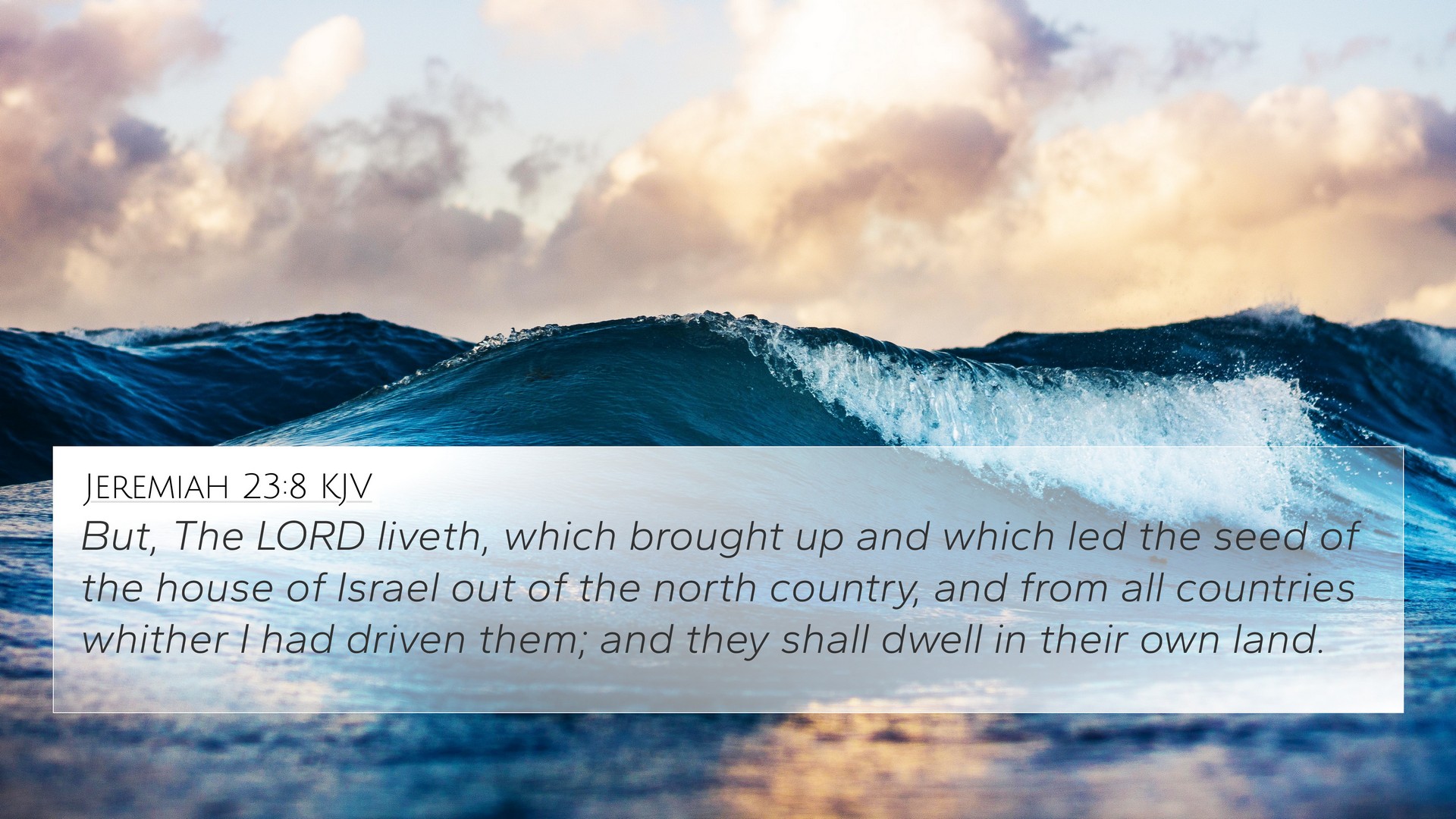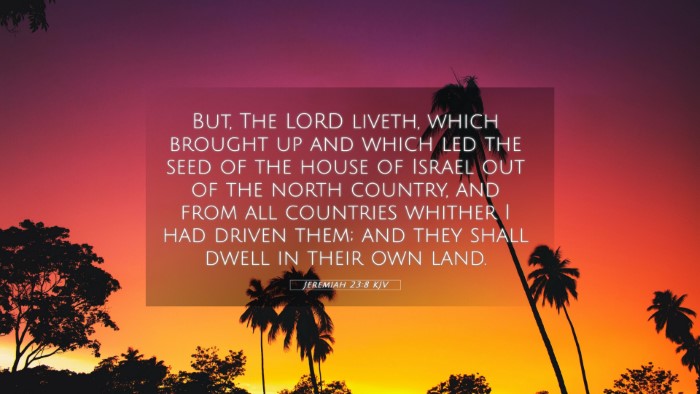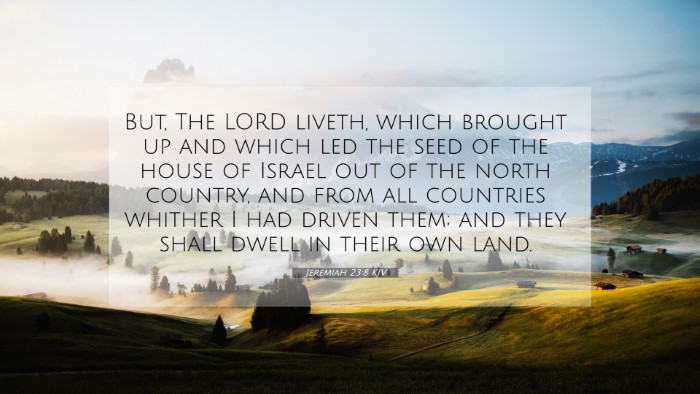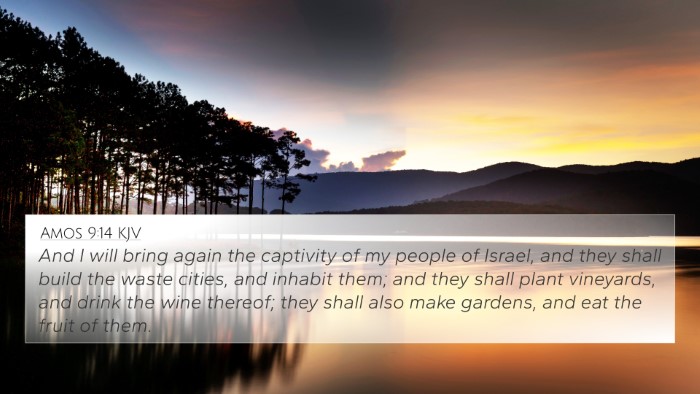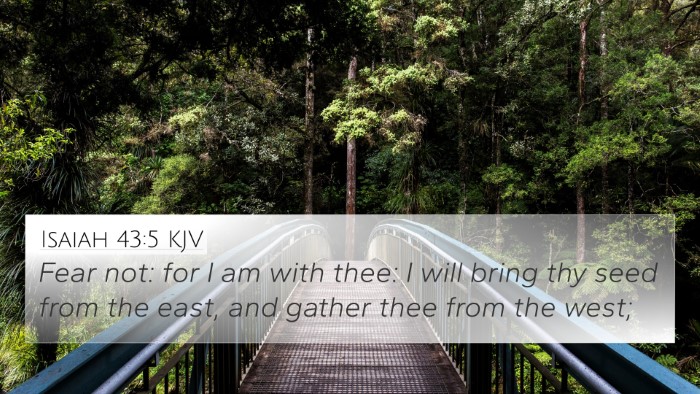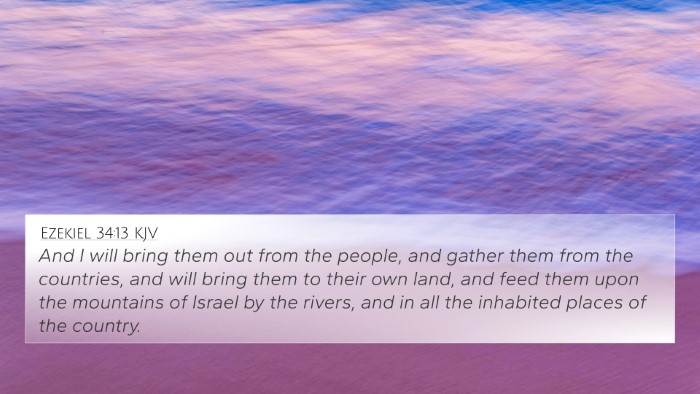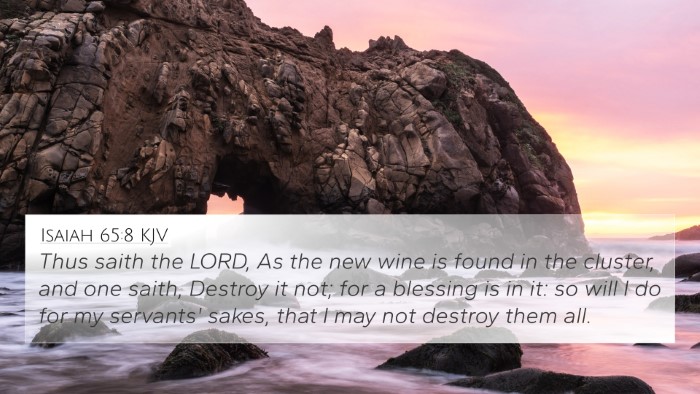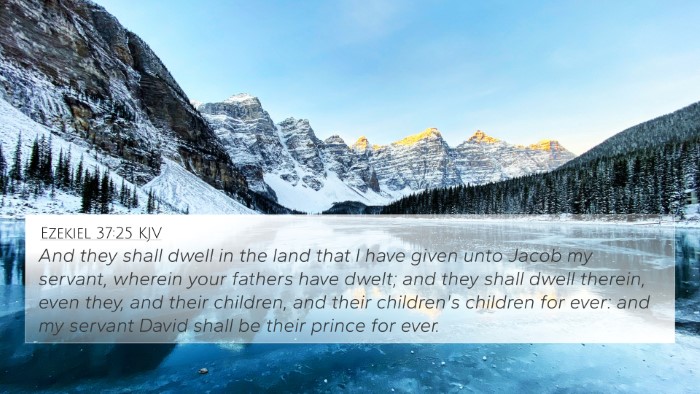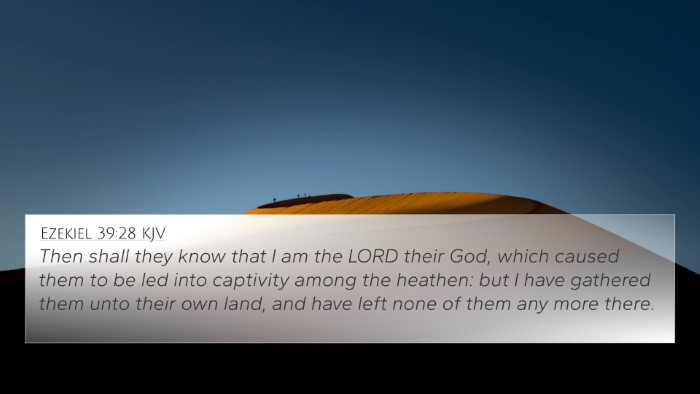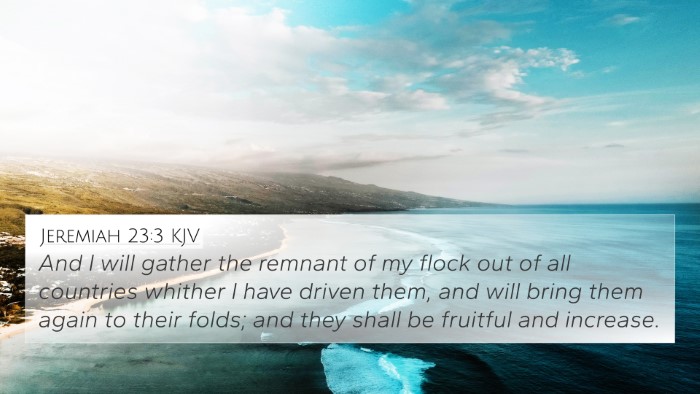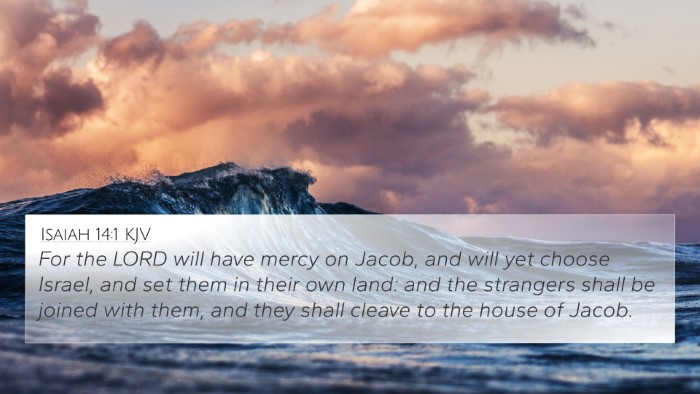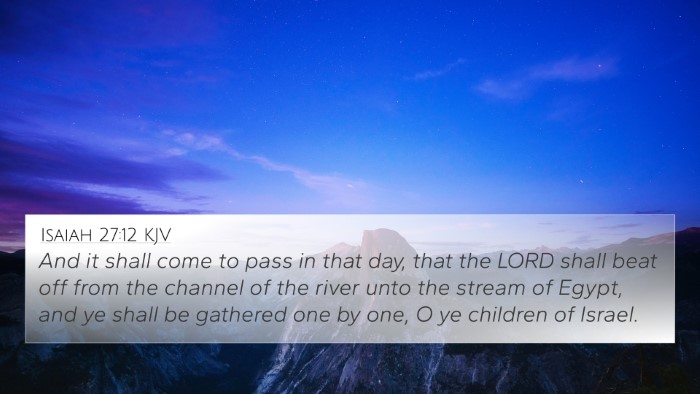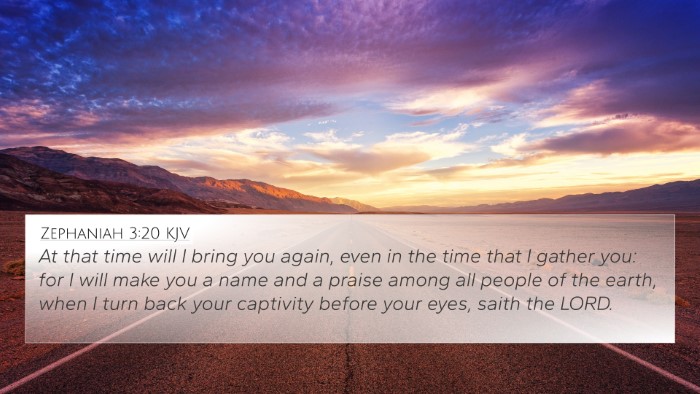The verse from Jeremiah emphasizes the faithfulness of God as the redeemer of His people Israel. In this passage, God is reaffirming His commitment to lead and bring His people back to their land, having been dispersed due to their disobedience and exile. Below is a detailed analysis that captures the essence of this verse through insights from renowned commentaries.
Commentary Insights
-
Matthew Henry:
Henry highlights the idea of God's omnipotence and faithfulness. The phrase "The Lord liveth" serves as a powerful declaration of God’s active presence in the lives of His people. He emphasizes that God was actively involved in the exodus of Israel from captivity and that despite their sin, God has not abandoned them.
-
Albert Barnes:
Barnes explains the historical context of this verse, noting that it reflects a prophecy of the return from Babylonian exile. He connects this promise to the spiritual restoration that God provides to His people, urging them to trust in His plans for their future.
-
Adam Clarke:
Clarke takes a deeper thematic approach, analyzing the symbolism of the “north country” as representing the place of exile. He elaborates on the mercy of God in bringing back the remnant of Israel, suggesting that this act represents not only physical restoration but spiritual revival as well.
Thematic Connections
This verse can be linked to various themes in the Bible such as redemption, restoration, and the faithfulness of God. By examining Jeremiah 23:8 through a cross-referencing perspective, we can draw connections to several key biblical passages:
- Isaiah 43:5-6: "Fear not; for I am with thee: I will bring thy seed from the east, and gather thee from the west."
- Ezekiel 34:11-12: "For thus saith the Lord God; Behold, I, even I, will both search my sheep, and seek them out."
- Micah 2:12: "I will surely assemble, O Jacob, all of thee; I will surely gather the remnant of Israel."
- Romans 11:26: "And so all Israel shall be saved: as it is written, There shall come out of Sion the Deliverer, and shall turn away ungodliness from Jacob."
- Hebrews 8:8-12: Discusses God's covenant with His people, promising restoration and forgiveness of sins.
- Psalm 126:1: "When the Lord turned again the captivity of Zion, we were like them that dream."
- Luke 21:24: "And they shall fall by the edge of the sword, and shall be led away captive into all nations; and Jerusalem shall be trodden down of the Gentiles, until the times of the Gentiles be fulfilled."
Comparative Bible Verse Analysis
Engaging in a comparative analysis, one can see how this prophecy in Jeremiah resonates with both Old and New Testament teachings. The connections highlight God’s unwavering assurance towards His people and promise of restoration:
Connections Through Prophetic Literature
The linking of Jeremiah 23:8 with other prophetic voices provides a deeper understanding of God's plans for restoration. Through these inter-Biblical dialogues, the continuity of God's promise is evident:
- Jeremiah 30:3: "For lo, the days come, saith the Lord, that I will bring again the captivity of my people Israel and Judah."
- Zephaniah 3:20: "At that time will I bring you again, even in the time that I gather you: for I will make you a name and a praise among all people of the earth."
- Matthew 24:31: "And he shall send his angels with a great sound of a trumpet, and they shall gather together his elect from the four winds, from one end of heaven to the other."
Tools for Bible Cross-Referencing
For those interested in conducting further studies that involve cross-referencing biblical texts, there are numerous tools available. Using a Bible Concordance or a Bible Cross-Reference Guide can greatly aid in identifying related scriptures. Here are some ways you can utilize these resources:
- Identify Themes: Use topical concordances to find themes that resonate with Jeremiah 23:8.
- Study Cross-References: Implement systematic cross-referencing across the scriptures to reveal deeper meanings and connections.
- Engage with Commentaries: Detailed commentaries provide insights that enrich understanding of specific verses.
Conclusion
In summary, Jeremiah 23:8 encapsulates the overarching theme of God’s faithfulness and redemptive plans for His people. This verse not only reflects historical events but also underscores God’s eternal promises that transcend time. By exploring thematic connections, engaging in comparative Bible verse analysis, and utilizing cross-reference tools, believers can gain a deeper understanding of the rich tapestry woven throughout Scripture that speaks of hope and restoration.
